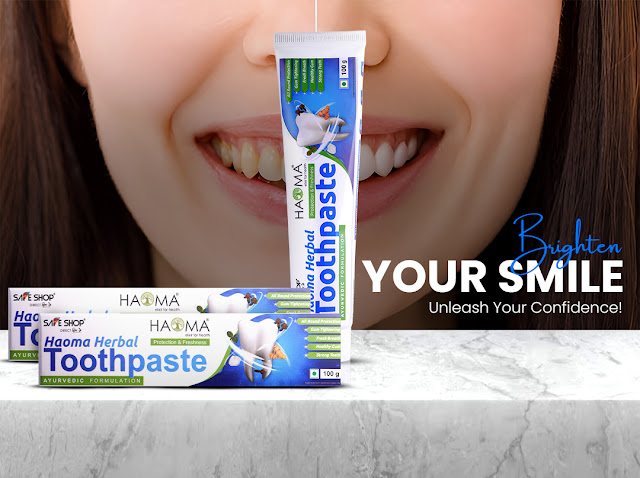
Toothpaste is a type of oral hygiene product that is used to clean teeth, freshen breath, and prevent tooth decay and gum disease. It is typically a gel or paste that contains a variety of ingredients to provide these benefits.
Here are some of the common ingredients found in toothpaste:
Abrasives: These help to scrub away plaque and surface stains. Common abrasives include calcium carbonate, hydrated silica, and baking soda.
Fluoride: This mineral helps to strengthen tooth enamel and protect against tooth decay.
Humectants: This help to keep the toothpaste from drying out and becoming hard. Glycerin is a common humectant.
Surfactants: These help to create foam and spread the toothpaste around the mouth. Sodium lauryl sulfate is a common surfactant.
Flavoring agents: These give the toothpaste a pleasant taste and freshen breath. Mint and other natural flavors are often used.
Preservatives: This help to keep the toothpaste fresh and prevent bacterial growth.
To use toothpaste, you should put a pea-sized amount on your toothbrush and brush your teeth for at least two minutes, twice a day. It's important to use a soft-bristled brush and to be gentle, as brushing too hard can damage tooth enamel and irritate the gums. You should also be sure to spit out the toothpaste and rinse your mouth thoroughly with water after brushing.
Premium Herbal Toothpaste
Premium herbal toothpaste is a type of toothpaste that contains natural ingredients derived from plants, herbs, and other botanical sources. These ingredients are often chosen for their
beneficial properties such as anti-inflammatory, anti-bacterial, and anti-fungal properties, and their ability to promote oral health and hygiene.
Some examples of common herbal ingredients found in premium herbal toothpaste include:
Neem: A tree native to India known for its anti-bacterial and anti-inflammatory properties.
Clove: A spice with anti-inflammatory and analgesic properties, often used for its ability to relieve toothaches.
Peppermint: An herb with a refreshing flavor and anti-bacterial properties.
Tea tree oil: An essential oil with anti-bacterial and anti-fungal properties, often used for its ability to fight bad breath.
Aloe vera: A plant known for its soothing and anti-inflammatory properties.
Premium herbal toothpaste is often marketed as a natural and healthier alternative to traditional toothpaste that may contain artificial colors, flavors, and preservatives. However, it is important to note that not all herbal toothpaste products are created equal, and it is important to read the ingredients list and do your research before making a purchase.
Benefit of Premium Herbal Toothpaste
Premium herbal toothpaste may offer several benefits over regular toothpaste. Here are some potential benefits:
Natural ingredients: Premium herbal toothpaste is typically made with natural ingredients like herbs and essential oils, which can be gentler on the teeth and gums than the chemicals
found in regular toothpaste.
Reduced sensitivity: Some herbal toothpaste formulations contain ingredients like aloe vera, which may help soothe sensitive teeth and gums.
Fresh breath: Herbal toothpaste often contains natural ingredients like peppermint or tea tree oil, which can freshen breath and leave your mouth feeling clean and invigorated.
Whitening: Some premium herbal toothpaste formulations contain ingredients like activated charcoal or baking soda, which can help whiten teeth and remove stains.
Environmentally friendly: Many herbal toothpaste brands are committed to using environmentally friendly packaging and ingredients, which can be a plus for those concerned about
their carbon footprint.
It's important to note that the effectiveness of any toothpaste, herbal or otherwise, depends on proper brushing technique and consistent use. It's also a good idea to check with your dentist before switching to a new toothpaste to ensure that it is appropriate for your oral health needs.
WHY CHOOSE PREMIUM TOOTHPASTE?
Premium toothpaste can offer a range of benefits beyond basic oral hygiene. Here are some reasons why you might choose premium toothpaste:
Better ingredients: Premium toothpaste typically uses higher quality and more natural ingredients. For example, they may use essential oils, natural sweeteners, and organic plant extracts. These ingredients can provide additional benefits such as whitening, freshening breath, and reducing sensitivity.
More advanced formulas: Premium toothpaste may contain more advanced formulas that can help with specific oral health concerns. For example, some toothpaste may be designed to help with sensitivity, enamel protection, or gum health.
Enhanced taste and experience: Premium toothpaste may have better flavors, textures, and overall experience. Some people find that using premium toothpaste can make brushing their teeth more enjoyable, which can lead to better oral hygiene habits.
Higher standards of production: Premium toothpaste may be produced in facilities with higher quality standards, which can help ensure that the toothpaste is safe and effective.
Ultimately, choosing a premium toothpaste is a personal choice based on your preferences and needs. It's important to consider factors such as ingredients, formula, taste, and production standards when making your decision.
Here are the basic steps for using toothpaste:
Wet your toothbrush with water.
Squeeze a pea-sized amount of toothpaste onto the bristles of your toothbrush. Place the toothbrush against your teeth at a 45-degree angle to the gumline. Gently brush back and forth in short strokes, focusing on the outer surfaces, inner surfaces, and chewing surfaces of your teeth. Tilt the brush vertically and use gentle up-and-down strokes to clean the inside surfaces of your front teeth.
Spit out the toothpaste after brushing.
Rinse your mouth and toothbrush with water. It is recommended to brush your teeth at least twice a day, for two minutes each time, using fluoride toothpaste. Make sure to replace your toothbrush every three to four months, or when the bristles become frayed.

.png)
.png)
.png)
.png)



0 Comments